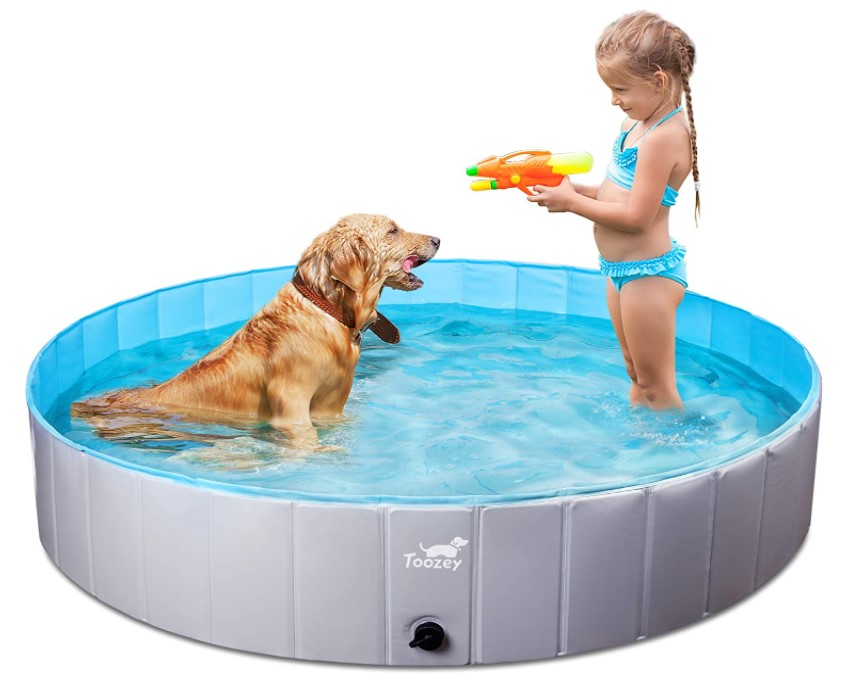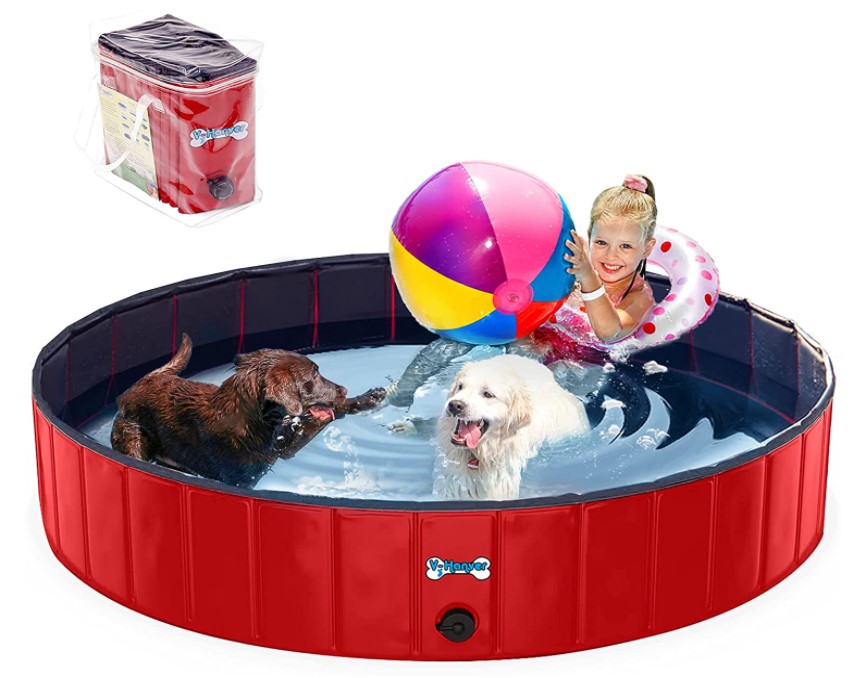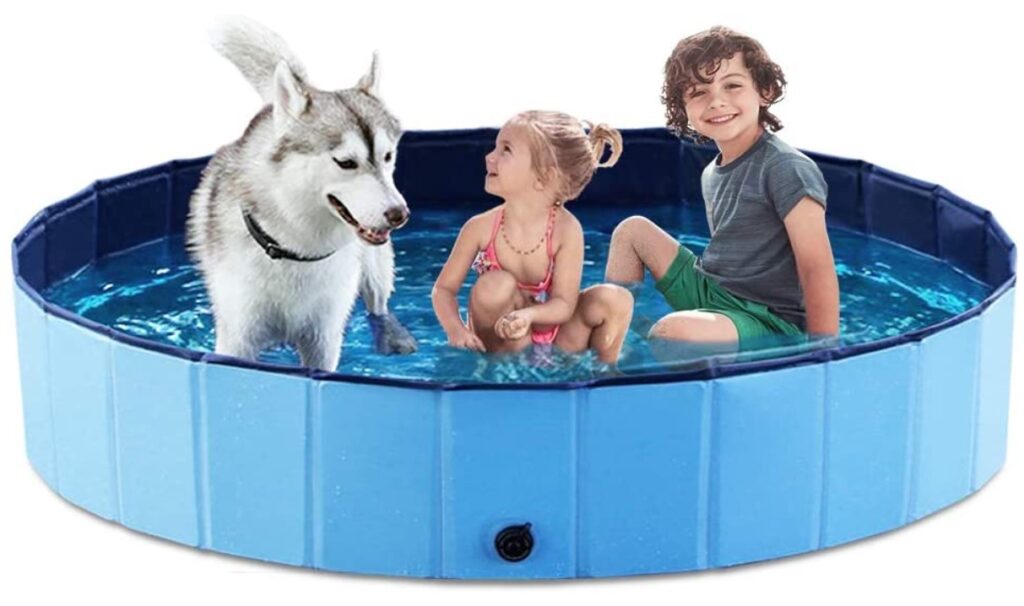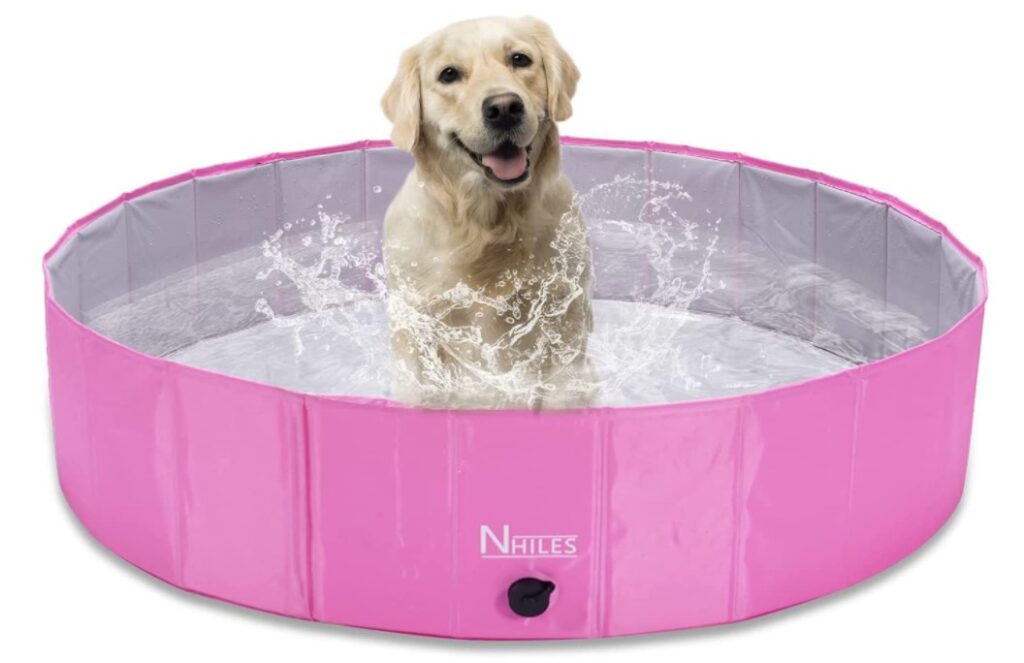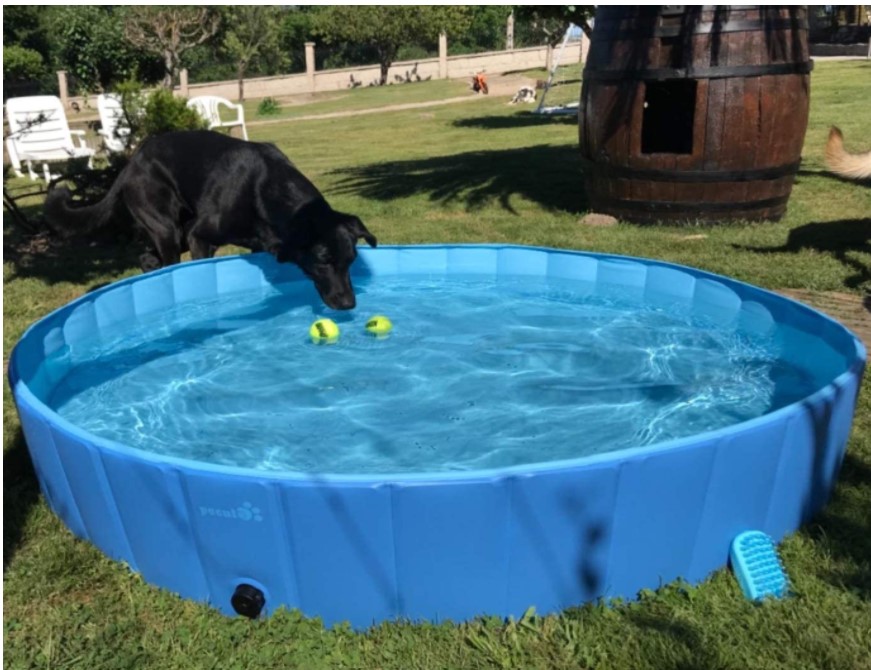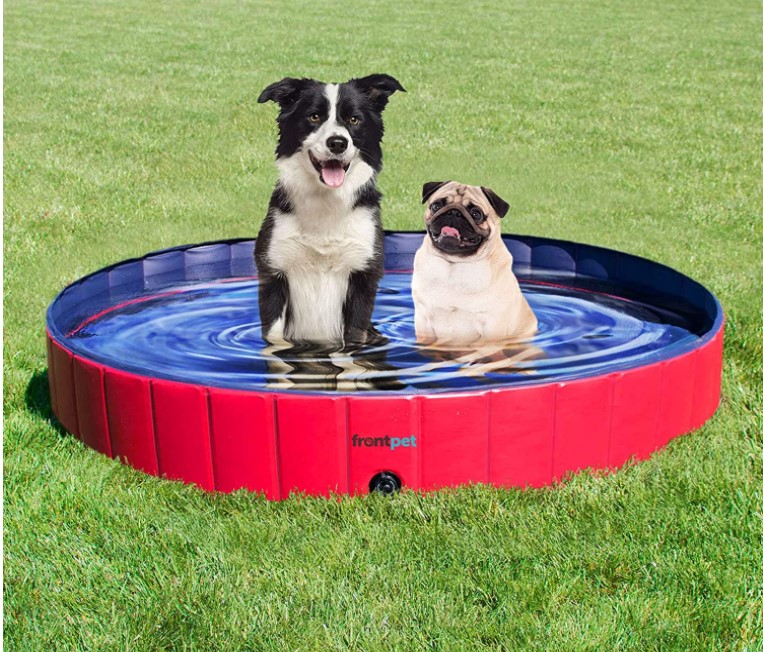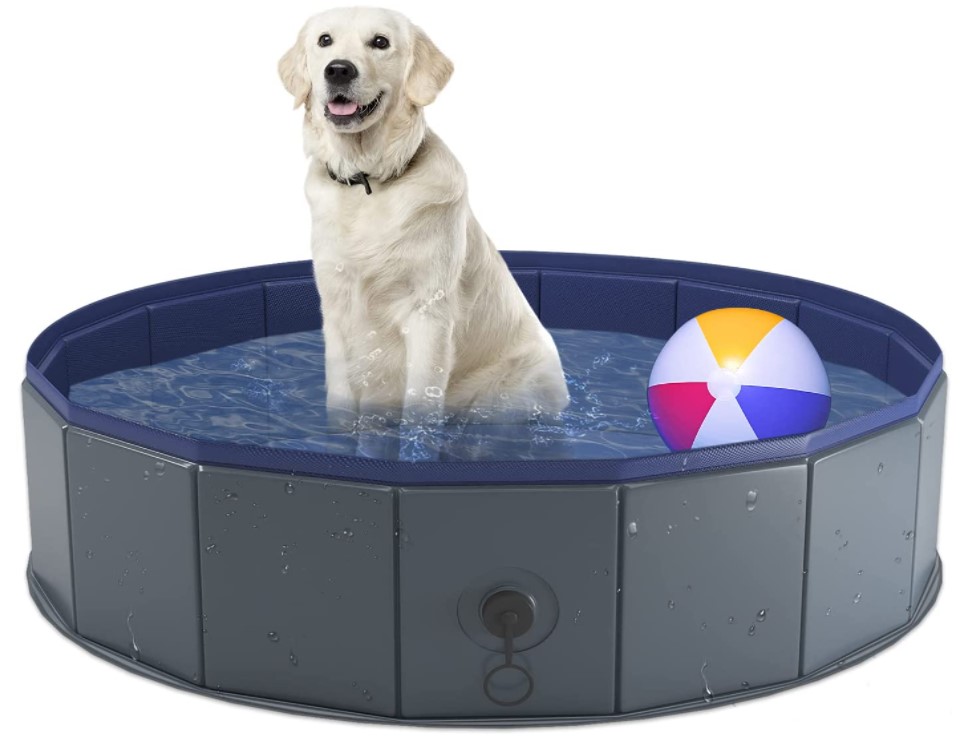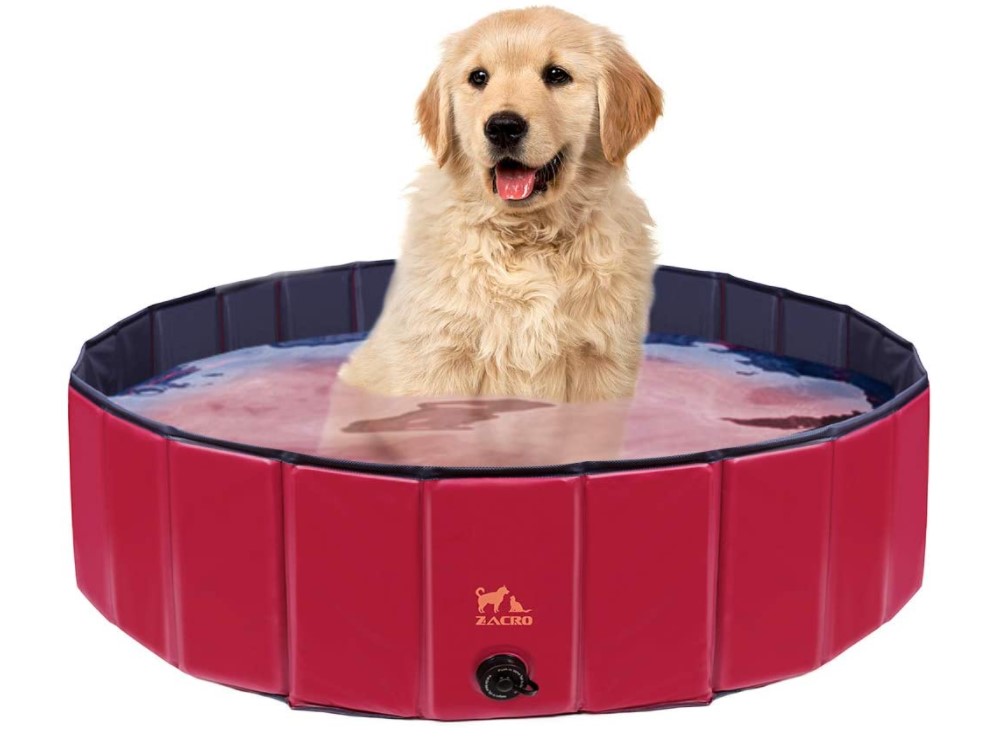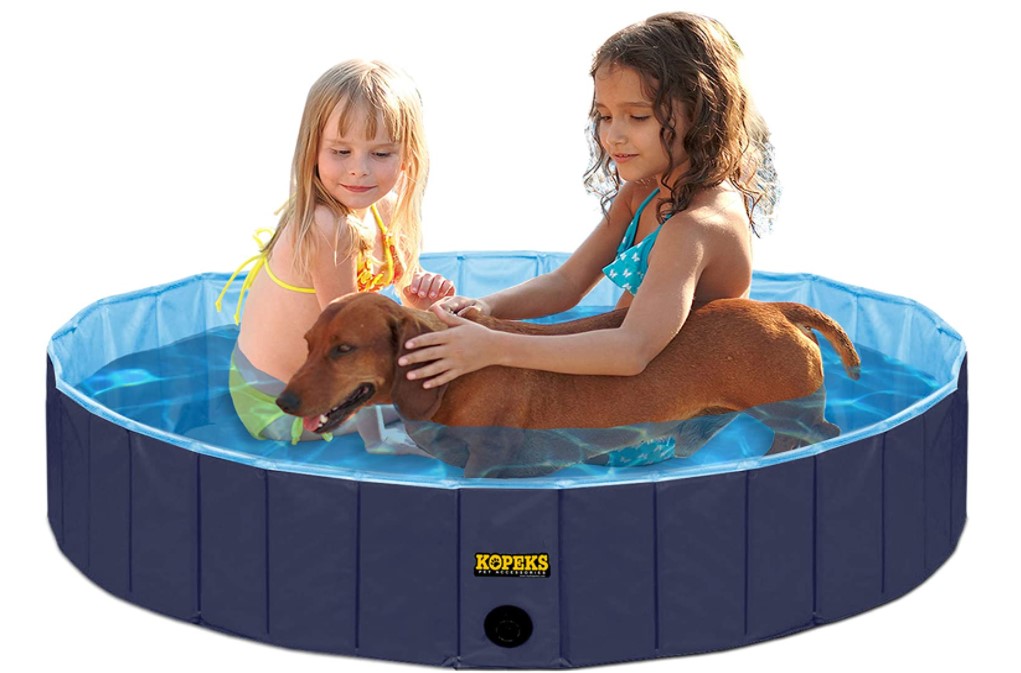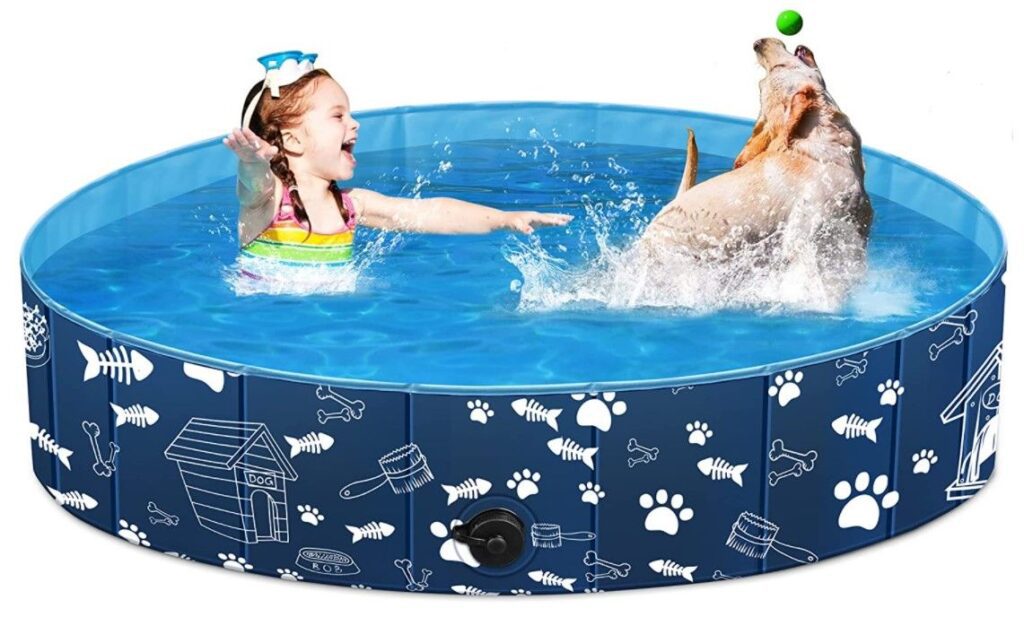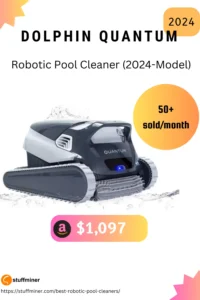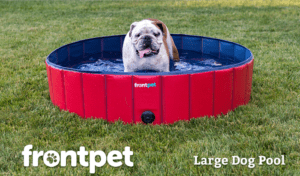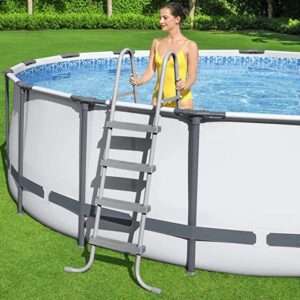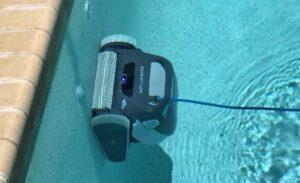
These doggie pools are made from durable PVC material that can withstand heavy use and last for years to come. One of the best things about these dog pools is their portability and easy storage. They can be easily set up and taken down in minutes, making them perfect for travel, camping, and outdoor adventures. With a variety of sizes and designs available, you can find the perfect pool to fit your dog’s size and personality. From splashy playtime to lounging and relaxation, these foldable PVC dog pools are sure to become your dog’s new favorite summertime accessory.
10 Best selling Foldable PVC Dog poool
Toozey is a multi-functional, slip-resistant pool that can be used by both dogs and kids. It’s made of durable PVC material, is portable, and can be used as a pet bath or swimming pool for small to large dogs. Additionally, kids can also enjoy using it as a plastic kiddie pool.
V-HANVER is a hard plastic, foldable pool for dogs and cats that can also be used by kids. It’s collapsible and portable, making it easy to store and transport. It can be used as a pet bath tub for small PVC dogs and puppies, as well as a play pool for kids.
The Jasonwell Foldable Dog Pet Bath Pool is a collapsible and portable PVC pool designed for dogs, cats, and kids. It’s perfect for bathing your furry friends or giving them a cool place to play during hot summer days. With its foldable design, it’s easy to store and transport. Get yours today and give your pets a refreshing experience!
The NHILES Portable Pet PVC Dog Pool is the perfect solution for pet owners looking for a versatile, collapsible, and leakproof option. This pet pool is great for indoor or outdoor use and can be used as a pet spa, bathing tub, or even a kiddie pool for kids. Its compact design makes it easy to store and transport. Give your pets a refreshing and fun experience with this durable and practical pet pool!
The Pecute Foldable Dog Pool is a versatile, portable PVC pool that can be used as a kiddie pool, dog swimming pool, pet bathing tub, or even a ball pit for children. It’s collapsible and easy to store, making it perfect for indoor and outdoor use. Get yours today and give your pets and kids a fun and refreshing experience!
The FrontPet Foldable Dog Pool is a collapsible PVC pool that can be used as a bathing tub, kiddie pool, or swimming pool for small, medium, and large dogs. It’s perfect for indoor and outdoor use, and its compact design makes it easy to store and transport. Get yours today and give your furry friends a refreshing and fun experience!
The Niubya Foldable Dog Pool is a portable and collapsible PVC pool that can be used as a pet wading pool, bath tub, or dog swimming pool. Its hard plastic construction makes it durable and leak-proof, and its compact design makes it perfect for indoor and outdoor use. Get yours today and give your pets a refreshing and enjoyable experience!
The Zacro Foldable Dog Swimming Pool is a large, collapsible PVC pool that can be used as a pet bathing tub or a swimming pool for dogs, cats, and kids. Its foldable design makes it easy to store and transport, and its durable construction ensures long-lasting use. Get yours today and give your pets and kids a fun and refreshing experience!
The Kopeks Round Heavy Duty Outdoor PVC Bathing Tub Pool is a portable and foldable option for pet owners who need a durable and heavy-duty pool for their pets. Its round shape and sturdy construction make it perfect for outdoor use, and its foldable design makes it easy to store and transport. Get yours today and give your pets a refreshing and fun experience!
The Unido Foldable PVC Dog Pool is a versatile and portable option for kids, babies, and pets. Its hard plastic construction and collapsible design make it perfect for outdoor use as a kiddie pool, dog swimming pool, or pet bathing tub. Get yours today and give your kids and pets a refreshing and enjoyable experience with this fun and practical water toy!

